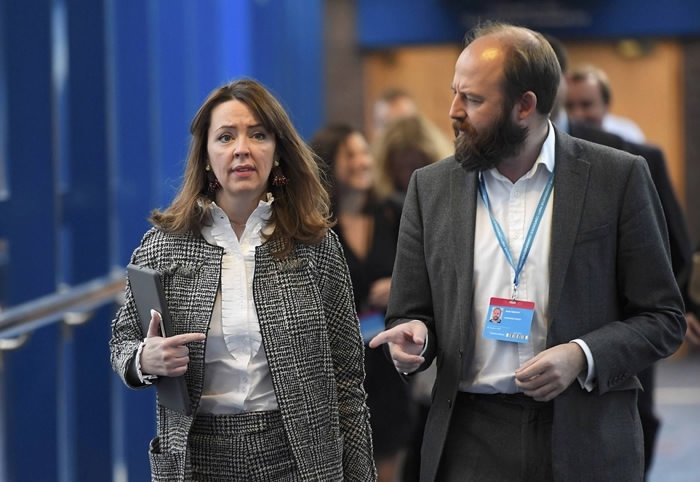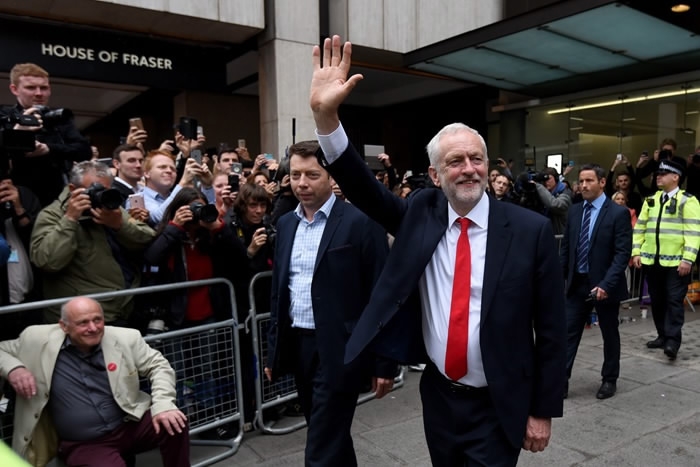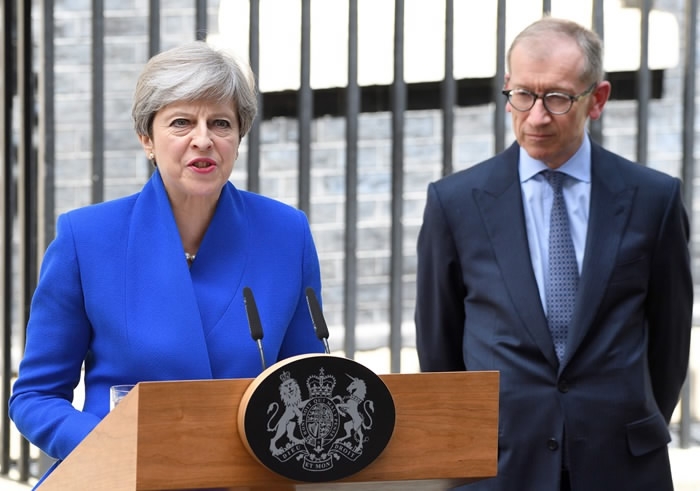A day after the Conservatives failed to win an overall majority in the UK's general election, Prime Minister Theresa May is still struggling to provide the stability she promised to the British people, casting further doubts on her future and the upcoming Brexit talks with the European Union.
Nick Timothy and Fiona Hill, two of May's closest advisers, announced their resignation on Saturday, seen as efforts to alleviate pressure on the prime minister.
According to a BBC report, May could face a leadership challenge next week if the two aids did not go in the aftermath of disappointing election results.

Nick Timothy and Fiona Hill, two of Prime Minister Theresa May's closest advisers, arrive on the final day of the annual Conservative Party Conference in Birmingham, UK, October 5, 2016. /VCG Photo
In a statement following his resignation, Timothy, who had overseen the Tories' policy program, took responsibility for failing to convey the party's message to British voters and urged Conservative Members of Parliament to "get behind" May.
On April 18, May announced a general election would be held on June 8, hoping to strengthen her hand as the negotiator representing the UK in Brexit talks. Promising stability and strong leadership, she attempted to win more seats from the Labour Party, which once lagged behind the Conservatives by 20 percent in polls.
However, led by Jeremy Corbyn, the major opposition party gradually closed the gap and ended up taking 30 more seats than it did in the 2015 election, forcing the UK into another hung Parliament.

Labour leader Jeremy Corbyn. /VCG Photo
Corbyn demanded May resign and said he was ready to lead a minority government. Meanwhile, May, who failed to fulfil her promise of stability and a strong leadership, is working against the clock to strike a deal with Northern Ireland's Democratic Unionist Party (DUP) to form a coalition government, which could keep her in power – for the moment at least.
Changes to ministerial roles
Uncertainties in Downing Street have also manifested themselves in possible changes in the Cabinet. As the Tories lost 13 seats, some government figures will need to be replaced.
Philip Hammond, Boris Johnson and Amber Rudd will stay as chancellor, foreign secretary and home secretary respectively, and Brexit Secretary David Davis and Defense Secretary Michael Fallon are also expected to keep their jobs.
But after nine middle-ranking and junior ministers lost their seats in the election, there could be changes in the cabinet to replace them.

British Prime Minister Theresa May (L) speaks in London, June 9, 2017. /VCG Photo
Low-profile powerbrokers
The DUP had been a relatively low-profile political entity until May said she was trying to form a coalition with the party on Friday.
After the election ended in a hung Parliament, the DUP's 10 seats are crucial for the Tories to reach the threshold to form a government.
The DUP is a pro-Brexit, pro-union (with the UK) and socially conservative party based in Northern Ireland. It opposes same-sex marriage and abortion.
If it can form a coalition government with the Conservatives, it could be tricky for the implementation of Brexit in Northern Ireland, as the DUP advocates a soft border with Ireland, a member of the EU.
The Tories formed a coalition government with the Liberal Democrats after the 2010 election ended in a hung Parliament, but the Lib Dems have announced they would not enter into a coalition with other parties this time.
Related stories:
Conservatives open fire on May over UK election failure
Jeremy Corbyn calls for Theresa May to quit following election losses
Hung drawn and quartered? The Queen's role in British politics










